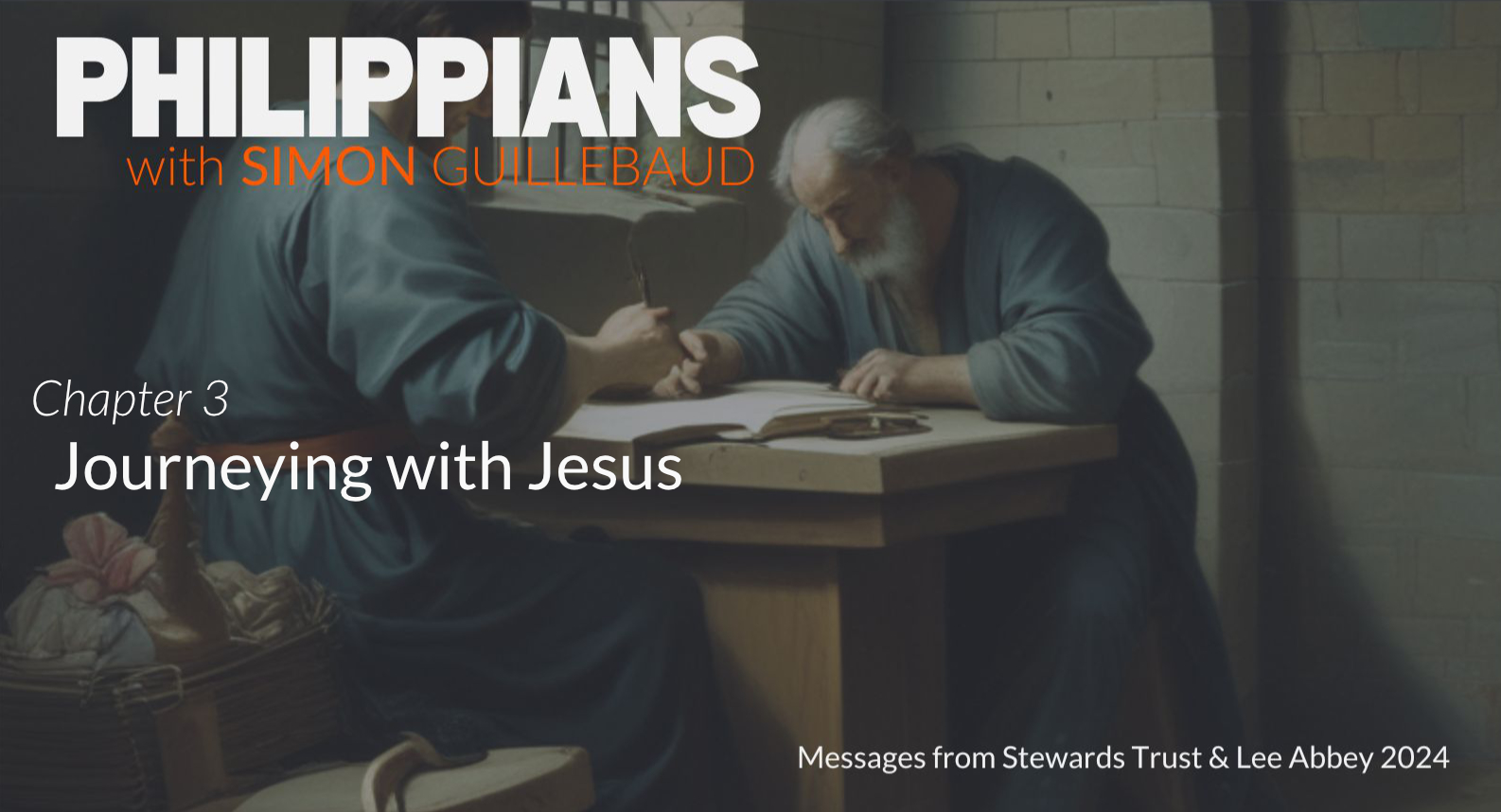Journeying with Jesus

This talk is the third in a series I gave on the book of Philippians this past summer. To listen to it, Click Below:
This chapter starts with faith, continues with resurrection power, and ends with glory!
I’ll share some of the illustrations I used, and finish with some useful questions for reflection.
A new convert approached Watchman Nee in deep anguish of soul, saying, “No matter how much I pray, no matter how hard I try, I simply cannot seem to be faithful to my Lord. I think I’m losing my salvation.” Watchman Nee replied, “Do you see this dog here? He is my dog. He is house-trained; he never makes a mess; he is obedient; he is a pure delight to me. Out in the kitchen I have a son, a baby son. He throws his food around, he fouls his clothes, he’s a total mess. But who is going to inherit my kingdom? Not my dog. My son is my heir! And you are Jesus Christ’s heir because it is for you that He died.” It’s deeply liberating to know we are Christ’s heirs not through our strivings for perfection, but simply by means of his grace.
We might think we’re successful, having done well on our own merit. But as Tim Keller wrote: “[Anything you have…] is due to the century and place in which you were born, to your talents and capacities and health, none of which you earned. In short, all your resources are in the end — the gift of God.”
The term ‘garbage’ Paul wrote is derived from the Greek skubalon, used only here in the entire New Testament. The word refers to excrement. Non-biblical sources of that time use it almost exclusively to refer to digestive wastes: faeces. Paul’s terminology is not vulgar, but it is extremely strong. English terms such as “garbage” don’t fully capture the sharpness of this expression.
Most ancient cities had a large, ever-burning pile of waste outside of the community where trash, filth, and garbage were discarded. This, in fact, was the same imagery Jesus used when describing the destiny of the wicked in Matthew 5:22 and 10:28. Christ’s term was “Gehenna,” the valley used for trash and filth outside of Jerusalem.
In short, Paul is describing his great and noteworthy human achievements using the worst word picture he could share with his audience. All that mattered to Paul was Christ; everything else was not merely less valuable—it was utter garbage.
Isaiah 64:6 All our righteous acts are like filthy rags (which actually translates as menstrual cloth)
He’s totally unimpressed with our achievements, it’s all grace, we come to him in humility and gratitude, and thanks to Him, by faith alone, we’ve already got an A!
So in that security we’re resolved to continue the journey in His resurrection power – wanting to know Him, experiencing His power in dramatic ways and through the sucker punches, willing to suffer for Him, forgetting what is behind, releasing hurts and baggage, living life on purpose, focused, motivated, energised, resolved, full of faith and hope, because we know the end result, it’s going to be amazing. We’re not there yet, but we will one day. And in the meantime it’s worth our everything. We have or we will pick up scars on the way, but what a privilege!
I speak about Linda Bridges, a ‘wheelchair warrior’ in my talk and you can discover more of her story in my Inspired Podcast with her – just click on the image to listen.

Questions for Reflection / Discussion:
Journeying with Jesus… Starts with Faith, Continues with Resurrection Power, Ends with Glory
- What are the dangers of performance-based religion? How might knowing you’ve already got an ‘A’ change you?
- How can I access that resurrection power (v10)?
- v10 Paul wants to know Christ, his power, and then a third surprising thing – are you willing to join him in that bit?
- That picture of being in the back of the truck hitching a ride but still carrying heavy suitcases – what are you still carrying unnecessarily?
- v15: ‘All of us, then, who are mature should take such a view of things’ – what things?
- How does (or should) knowing our citizenship is in heaven affect how we life our lives now?


Leave a Reply